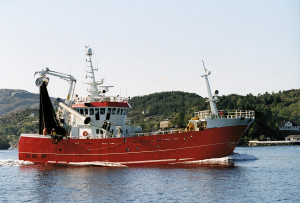Europa legaliza la sobrepesca
La sobrepesca en Europa sera estructuralmente legalizada. Esto es debido al Plan de Pesca Plurianual para el Mar Báltico, que en esta semana se firmó un acuerdo entre la UE y el Parlamento Europeo. El Partido para los Animales advierte que el plan acordado viola los acuerdos previos para detener la sobrepesca en 2020. “Este plan no sólo legaliza la sobrepesca en el Mar Báltico, sino también indirectamente la sobrepesca en el Mar del Norte y otras aguas de la UE“, dijo la Eurodiputada Anja Hazekamp, quien en nombre del Partido para los Animales tomó parte en las negociaciones.

Las negociaciones de meses de duración sobre el plan pesca para el Mar Baltico fueron extremadamente difíciles. El equipo negociador del Parlamento Europeo abogó para detener la sobrepesca a mas tardar en 2020. “Volver a la pesca a un nivel sostenible es necesario para evit\ar que nuestros mares se agoten por completo. Siete de las ocho especies de peces en el Mar Báltico se encuentran en peligro de extinción por la pesca excesiva y otros factores. El mar Mediterráneo es muy seriamente amenazada y tambien en el Mar del Norte las poblaciones de peces estan en problemas. El plan plurianual para el Mar Báltico fue una oportunidad para hacer un nuevo comienzo en la lucha contra la sobrepesca“, dijo Hazekamp.
Los Países Bajos y otros países de la UE negaron sin embargo, aceptar durante las negociaciones, un límite de pesca sostenible. “Los Estados miembros de la UE siguieron luchando por las excepciones para poder pescar aun mas. La mayoría del equipo negociador cedio bajo mucha presión de los miembros de la Comisión Europea. Las consecuencias son grandes y no se limitaran unicamente al Mar Báltico“, advierte el Partido por los Animales, que no estaba de acuerdo con el acuerdo de la sobrepesca.
“El plan del Mar Báltico también servirá como base para el Mar del Norte, el Mar Mediterráneo y otras aguas europeas. Con esto la sobrepesca estructural en Europa se legaliza“, dice Anja Hazekamp.
Hay una ultima oportunidad para detener la legalización de la sobrepesca. Todo el Parlamento Europeo aún debe aprobar el plan en una votación plenaria por los 751 miembros.
La fraccion parlamentaria del Partido para los Animales en el Parlamento tiene sus dudas sobre el papel que han desempeñado los Países Bajos en la creación del Plan del Mar Báltico. El miembro del Partido Frank Wassenberg ha hecho preguntas parlamentarias al ministro Van Dam sobre la posición holandesa en las negociaciones.
Overfishing in Europe will be permanently legalised. This is due to the Multiannual Plan for Fisheries in the Baltic Sea on which a deal was concluded between the EU member states and European Parliament this week. The Party for the Animals warns that the agreed plan is in defiance of earlier commitments to put an end to overfishing before the year 2020. “This plan will not only legalise overfishing in the Baltic Sea, it will consequentially make overfishing in the North Sea and other European waters legal as well,” says MEP Anja Hazekamp, who took part in the negotiations on behalf of the Party for the Animals.

The months of negotiations on the plan for fisheries in the Baltic Sea advanced with difficulty. The EU negotiating team called for an end to overfishing before the year 2020. “Gradually reducing the level of fishing to sustainable levels is absolutely necessary to prevent our seas from becoming completely fished out. Seven out of the eight fish species living in the Baltic Sea are endangered due to overfishing and other factors. Fish populations in the Mediterranean Sea as well as in the North Sea are under serious threat. The multiannual plan for the Baltic Sea was our chance to start tackling the issue of overfishing,” according to Hazekamp.
However, as the negotiations proceeded, the Netherlands as well as other EU countries refused to accept a sustainable fishing limit. “EU member states kept negotiating exceptions which would allow them to fish over the set limits. A majority of the negotiating team changed their minds due to great pressure from the member states and European Commission. This will have major consequences which will not be confined to the Baltic Sea,” warns the Party for the Animals, which did not support the overfishing deal.
“The Baltic Sea Plan will also serve as a starting point for the North Sea, the Mediterranean Sea and other European waters. It will thereby legalise structural overfishing in Europe,” says Anja Hazekamp.
There is one final chance to stop the legalisation of overfishing. The plan still has to be adopted by the entire European Parliament in a plenary vote with all 751 members.
The Party for the Animals´ Lower House faction questions the role that the Netherlands has played in the realisation of the Baltic Sea Plan. MP Frank Wassenberg has posed questions in Parliament to State Secretary Van Dam about the input from the Netherlands during negotiations.